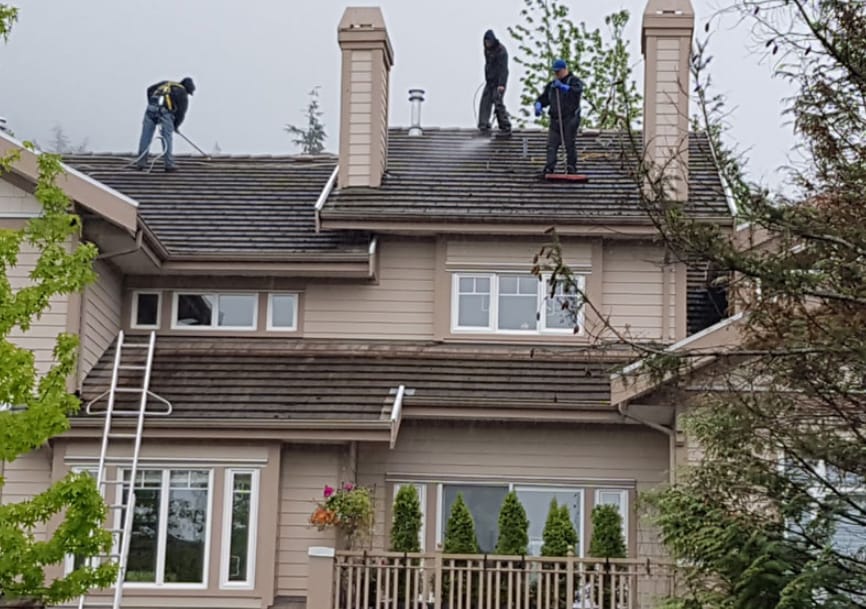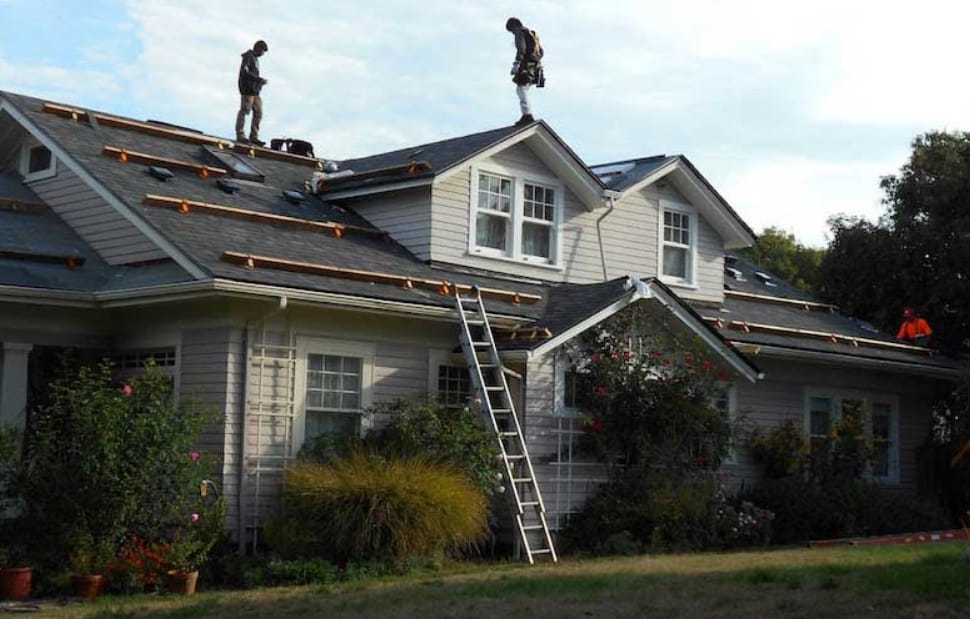Commercial roofing is one of the most important elements of any structure. It protects your property from the elements, keeps valuable possessions safe from inside, and improves energy efficiency. Still, it’s frequently ignored — until expensive problems emerge.
Thank you for reading this post, don't forget to subscribe!We’ll guide you through the commercial roof maintenance essentials, from the importance of inspections to saving on costs and the right contractors. By the end, you’ll learn how to maintain your roof in good condition for years ahead.
Importance Of Commercial Roof Maintenance
The last time you thought about the health of your commercial roof was when? If your response is “not lately,” you are not alone. Most property managers and owners do not touch roofing matters until damage has already hit the bottom line.
Here’s the truth—routine roof maintenance is not just a suggestion; it’s a requirement. A well-maintained roof can:
- Increase the roof’s life and postpone the need for an expensive replacement.
- Avoid leaks and water damage, minimizing the risk of mold or spoiled inventory.
- Reducing your energy bills by keeping insulation and efficiency intact.
- Preserve the structural integrity of the building.
Failing to perform maintenance, on the other hand, could increase repair costs, decrease productivity during downtime, and potentially pose safety hazards in the building. Maintenance provides tangible benefits that protect both your bottom line and your peace of mind.
Why Roof Inspections Are Important
In what way do routine inspections factor into roof maintenance? Consider them the building blocks of prevention. Planned inspections allow you to identify potential faults before they turn into big problems.
Below are a few reasons regular inspections are a must:
Preventing and Early Detection of Problems: Inspections can detect small issues, including cracks, punctures, or ponding water, before they become larger problems.
Seasonal Damage: Weather changes like heavy rains, exposure to sun, and snow can cause a lot of damage to your roof. Seasonal inspections prepare your roof for these threats.
Compliance and Insurance: Routine checks also ensure that businesses are meeting local business regulations and insurance requirements.
You should at least have your commercial roof inspected twice a year and after substantial storms, experts recommend. If you don’t know where to start, many professional contractors also sell maintenance packages with routine inspections.
Typical Problems Associated with Commercial Roofing
What Are Common Roofing Problems To Look Out For? Over time, even the most durable commercial roofs start to show signs of aging. Some of the most frequent issues are as follows:
Leaks and Moisture
One of the most common complaints is water leaks. Uncontrolled leaks that grow can cause mold, structural damage and costly water damage to the inside of your building.
Ponding Water
Flat roofs on commercial buildings are particularly susceptible to pooled water. Heres is where prolonged ponding takes a toll — it stresses the roof’s surface and creates the ideal conditions for leaks as well as reducing the material’s lifespan.
Cracks, Blisters, and Splits
The constant changes in temperature cause roofing materials to expand and contract, naturally leading to small cracks or blisters that need immediate attention.
Membrane Damage
Newer membrane roofs — including EPDM, TPO or PVC — can also suffer punctures or tears from equipment, foot traffic or debris and lose protection.
If you’re competent with tools and possess the time and energy, you can save a lot of money by handling most of the work yourself. Are you able to take care of roof maintenance yourself or leave it to the professionals? Some maintenance is DIY-able, but there’s a limit to what you can handle on the premises and what you actually need hands-on expertise to maintain.

DIY-Friendly Tasks:
Debris Removal: Removing leaves, sticks, or trash will help water drain and not pool.
Routine Monitoring: Check for certain indicators like cracks or stains during general building monitoring.
Let Professionals Handle It:
Thorough Investigations: Experts have specialized tools to spot hidden problems you’d overlook.
Repairs: Whether ponding water or membrane replacements, skilled contractors have the experience your roof needs to remain functional.
Long-Term Fixes: Experts can recommend upgrades or treatments to prolong your roof’s life, such as sealing or reflective coatings.
While you can DIY to prevent issues between regular visits with a professional, hiring roofing cleaning contractors ensure lasting results. A good rule of thumb? Never be sure, just trust the professionals.
Cost-Saving Maintenance Tips
Taking care of your roof doesn’t need to cost a fortune. A proactive manner can maintain costs manageable, while maximizing your roof’s efficiency. Here are some tips to save on spending:
Schedule Regular Inspections
Damage repair costs can be significantly lowered with early detection.
Clean Gutters and Drains Regularly
When water accumulates in an overhead drainage system can cause damage to the roof.
Make Preventative Repairs
Preventing small issues before they escalate into larger problems saves on more costly repairs.
Upgrade Insulation
This helps to lower your energy bills and protects the roof from unnecessary strain.
Consider Roof Coatings
They increase UV resistance and energy efficiency while also extending the life of your roofing materials.
Choosing a Roofing Contractor
So, how do you separate the good from the great when looking for a professional roofing specialist? Here are key qualities to look for in a contractor:
Experience — Select second-tier organizations with genuine experience area of expertise in business material.
Transparency: A good contractor will be transparent with you upfront about costs, do a thorough inspection and walk you through their report and provide photo documentation of repairs needed.
Reputation: Look for reviews, testimonials and references from past clients.
Certifications and Insurance: Make sure they’re licensed, insured, and certified to safely and professionally execute your project.
Regular Maintenance Plans: Some contractors offer ongoing service plans for you to choose from to manage the maintenance efforts of your roof.
Over the years, a reputable contractor can be a strong partner in keeping your building functioning and maintaining its value.
Setting Your Commercial Roof Up with Long-Term Health
Commercial roof maintenance is not a “set it and forget it” endeavor. It demands constant vigilance, targeted scrutiny and the proper blend of deterrent tactics. But when done right, it can save money, reduce disruptions and offer peace of mind for decades.
Start by calling to schedule a professional inspection now, or contact us to find out how to establish a proactive maintenance program. Your roof deserves the best—your operations rely on it.



